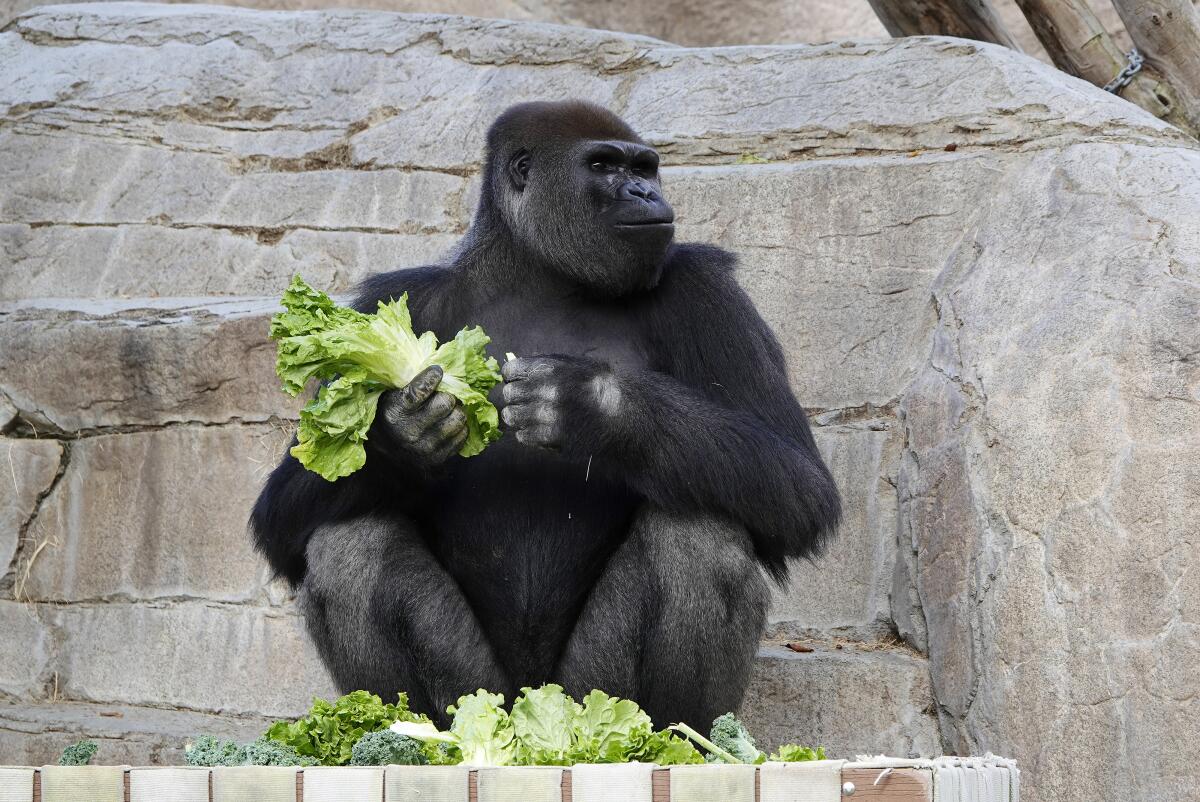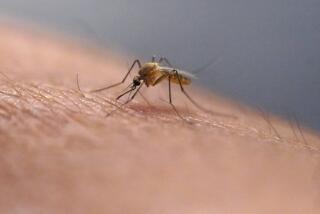Gorillas close to full recovery from COVID-19 at San Diego Zoo Safari Park

- Share via
Weeks after gorillas at the San Diego Zoo Safari Park contracted COVID-19, park officials said this week the animals will make a full recovery.
The troop of eight gorillas was likely exposed to the coronavirus by a keeper who tested positive for COVID-19 in early January. Days later, a few gorillas began coughing. Nearly the entire troop seemed a bit less energetic than usual, according to Lisa Peterson, executive director of the park.
Park staff confirmed the diagnosis by testing the troop’s fecal samples for the coronavirus. Those samples came back positive for the so-called “California variant” of the virus, a fast-spreading strain linked to at least 14 COVID-19 cases in San Diego County and 446 infections statewide — and counting.
Since then, the park’s veterinary team has monitored the troop to make sure that they are eating and drinking enough to recover on their own.
“We’re not seeing any of that lethargy. No coughing, no runny noses anymore,” Peterson said. “It feels to us like we’ve turned the corner.”
Multiple gorillas at the San Diego Zoo Safari Park have tested positive for the virus. It’s believed they contracted it from an asymptomatic staff member.
Fecal samples from the gorillas are no longer testing positive for the virus.
There was one gorilla that Safari Park staff kept an especially close eye on: Winston, the troop’s leader, a 49-year-old silverback.
The team found that Winston had pneumonia, likely due to COVID-19, as well as heart disease, one of the underlying medical conditions that the Centers for Disease Control and Prevention have linked to more severe coronavirus infections in humans.
Winston received antibiotics and heart medication and an antibody treatment meant to block the coronavirus from infecting cells.
We want to protect our loved ones from the coronavirus. For many of us, that includes our pets. Here’s what experts know about the risks they face.
Winston has been more active since being treated with the antibody, the park said.
It’s the first known case of the virus infecting any of the great apes — a group that includes gorillas, bonobos, chimps and orangutans. Humans share about 98% of our DNA with gorillas.
To safeguard the animals, Peterson says, some of them will get the COVID-19 vaccine — though, like Winston’s antibody treatment, the vaccine comes from a supply not permitted for use in people.
“The hope is that we would be able to vaccinate wildlife that would be susceptible to illness and then prevent them from ever catching it,” she said.
In other words, the same rationale for vaccinating people against the coronavirus.
Nearly all of the veterinarians and others at the San Diego Zoo and Safari Park who work directly with animals have received a COVID-19 vaccine, according to Peterson, noting that these employees fall into the same vaccination category as healthcare workers.
Wosen writes for the San Diego Union-Tribune.
More to Read
Sign up for Essential California
The most important California stories and recommendations in your inbox every morning.
You may occasionally receive promotional content from the Los Angeles Times.











